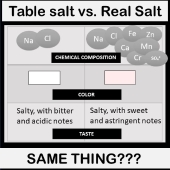

Rj Howell wrote:So far the least expensive I've researched is ~$10K, but that my area in the Nor'east US and for my requirements. It's also me doing all the setup/install. Without personal involvement I'd expect $25K and upwards for my basic system. All I require is 220v for my well.
Would my hopeful system work for you? Doubt it as none us know you solar possibilities, your current usage or what usage you wish to have when the grid goes down. You have many steps ahead of you starting with knowing your usage now and your realistic goals.
So:
Current usage:
Hopeful Grid down usage:
Period of time you wish to sustain power level:
Voltages of appliance of which you wish to run:
Overall wattage of said appliances:
Average days (and hours per) of sunshine:
Note: few to no clouds as production is reduced
Reducing the requirements for grid power is an important step. My lighting is LED lighting my means of 18650 batteries that I can recharge by driving to the store (plugged into the 12v socket) or solar, same for our phones & computers.. Heat is my wood stove. Cooking is on the gas stove. For us the only power requirement is the water well. Add freezer to that if grid goes down in warmer weather (which is rare).

David Baillie wrote:
Helena Green wrote:I'd like to get a solar generator, but I don't know much about them. I've researched the basics of voltages, watts, etc. - but that's about it.
Our house is wired for a generator, so all I do right now is plug in the house into the generator as you would plug in an appliance into the wall outlet -- and I like that convenience. (We use a gas powered generator when the power goes out. It powers up the whole house, except for the heat furnace, which is not a problem because we have a wood stove.)
I'd like to replace it with a solar unit, so that we are not dependent on gas.
I have found this one: https://amzn.to/3NI89b7
Is this a good unit? Will it power up the house? Will it last? What will I do when the battery wears out in case the grid has went at that point? Is there a less expensive way to do it (as I suspect there should be?)
Maybe someone can recommend a good book on "generators for dummies"? Or a place to buy a good one? Maybe there is an artesian who makes them?
I found what looks like the same thing as wha
I found this video here that goes over the units you quoted capacities. Its a lot of backup and comes with a hefty pricetag. For similar money you could install a permanent option including batteries and inverters and a solar option wired to power critical loads in the house permanently. These are really first and foremost a portable solutions for outages that do not exceed their battery capacity. You have to charge them and if the outage goes longer then your reserve they will require you to fire up your generator. Not a bad product but expensive and more made for portability then durability.
https://www.amazon.com/dp/B09MVJP7MV?coliid=I1Z8UYBDF4KODL&colid=1ZMXT11LQPUA7&psc=0&linkCode=sl1&tag=triumphover01-20&linkId=773a3372b26d6b9e33dce6561d44348a&language=en_US&ref_=as_li_ss_tl
cheers, David
John F Dean wrote:Given your approach, you might want to contact Missouri Wind and Solar ….MWANDS. Tell them what you are after. I have done business with them for many years. You will talk to a human, and they will hold your hand through the process.


Anne Miller wrote:Helena, welcome to the forum!
You have brought up some really good points.
I quit using salt years ago so I have not paid a lot of attention to salt.
I recently added salt back into my diet because salt makes the food taste much more interesting.
We have both sea salt and pink salt.
Is one better than the other?
For anyone that might be interested in harvesting their own salt this thread is for you:
https://permies.com/t/85170/Waynes-solar-salt-factory

Eino Kenttä wrote:My mother had a stroke a bunch of years back. After surgery, she was prescribed salt pills (yes, just plain salt in pill form). Apparently, that's standard practice after any damage involving the brain, as more salt is needed during healing. Also, after the stroke, she started craving salt, which she never did before, so I suppose her body proved the doctors right in this case. Interestingly, young kids often love salt. I wonder if it's because they need it to develop their brain?

Jordan Holland wrote: I would point out that I also feel the official position on blood pressure is just as erroneous as the official position on reducing salt as much as possible. !

